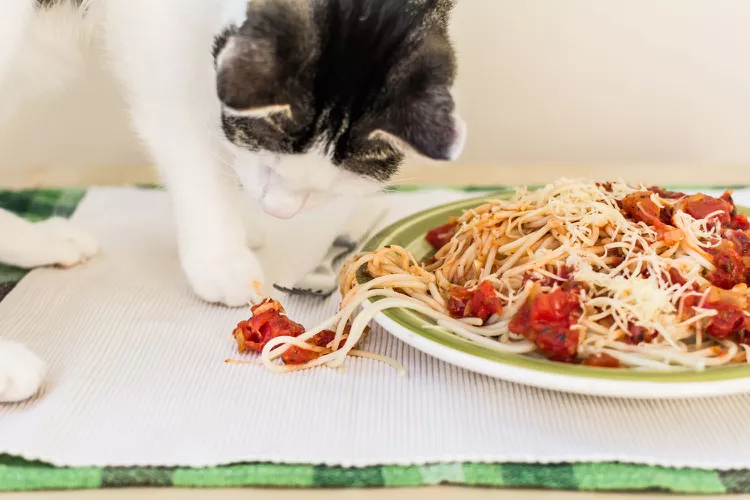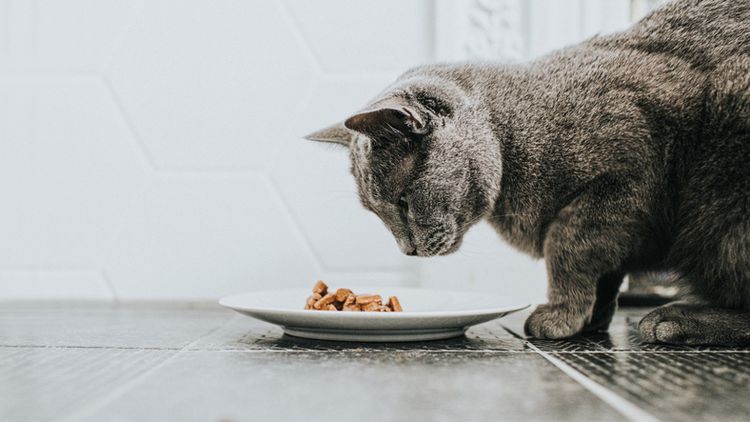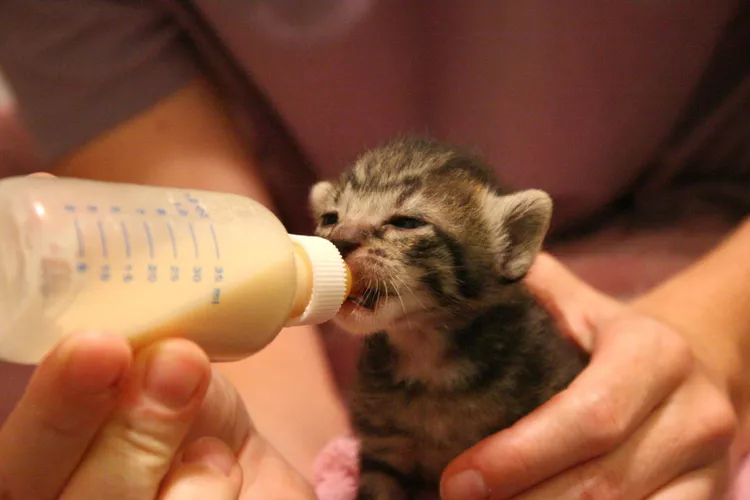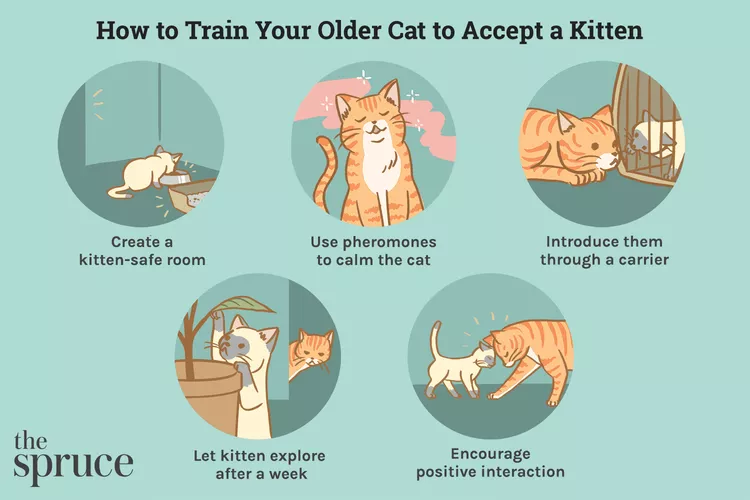
Who doesn’t love a heaping bowl of spaghetti? Quite possibly one of the most popular starchy comfort foods, pasta is a weekly staple for most families. But can your feline also indulge in some penne or linguine with you every now and then?
According to experts—maybe. Pasta is safe for many cats to sample from time to time. However, like most human foods, there are some safety considerations that you should make (and potential dangers to keep in mind) before serving your cat spaghetti.
Can Cats Eat Pasta?
Like many meals that your pet might take an interest in, it isn’t so much the pasta itself that can be hazardous—it’s how it’s prepared. The basic ingredients of pasta—flour, water, and eggs—are typically okay for cats to eat. The shape of the pasta also doesn’t matter due to it’s soft texture, so whether your preference is rotini or linguine, it should be fine for your cat to sample.
That being said, while the ingredients in pasta shouldn’t cause any major health issues in your cat, they also don’t provide much nutritional value. Cats are carnivores, and therefore should really be getting most of their food nutrition from sources of protein, like fish or chicken. In fact, protein deficiency is a serious condition and can lead to dangerous health problems in cats, which is why if you’re going to offer your kitty human foods, you’ll probably want to supplement their diet with healthier, more nutritious options like salmon, fruits and veggies, or even certain types of cheese.
While grains do find their way into many cat (and dog) foods, these agents only serve to add bulk and bind the food, and don't provide any important nutritional value to our four-legged friends. Pasta is also deficient in the important vitamins and minerals that both felines (and their human counterparts) need on a daily basis.
The Dangers of Pasta for Cats
But while pasta isn’t necessarily “good” for your cat, it certainly won’t harm him or her to have a little bit every once in a while, as long as the pasta is served plain and isn’t coated with either tomato or creamy sauces (which can be either too acidic or creamy and high-fat), butter, or any additional ingredients. Some ingredients that are found in many pasta dishes, such as garlic, onion, or salt can be toxic to both cats and dogs, so you’re definitely not going to want to share a prepared pasta meal from a restaurant. Anything that’s high in salt, sugar, fat, and additives isn’t going to be good for your cat, and that includes pasta and it's toppings.
Another type of pasta to avoid is anything that’s already processed (think Spaghetti-Os), as well as instant noodles, which can be loaded with sodium. Cats can’t tolerate significant amounts of sodium, and so snacking on salty or processed noodles can have serious consequences for your kitty.
Other dangers associated with your cat eating pasta include increasing their risk for obesity and other weight-related issues. Some cats may also have trouble digesting pasta, and it can therefore lead to GI issues like diarrhea. There is also a chance that your cat may be allergic to wheat, in which case they definitely should lay off pasta and any other starchy staples.
How to Safely Offer Pasta to Your Cat
Always be sure to check in with your veterinarian before offering pasta or any other human food to your cat, as every kitty will have unique health needs and your vet can advise you as to whether or not it's safe to share your spaghetti. If you get the green light, start with a small bite or two and see how your cat reacts. If they show signs of any digestive issues or other health problems, avoid offering your cat pasta again. If your cat does seem to enjoy the pasta, keep in mind that they should only be offered a very small amount on occasion—it certainly shouldn't become part of their daily diet.
Another thing to keep in mind is that cats should never be offered raw pasta. Their bodies are not equipped to digest raw noodles, and it will likely cause them digestive discomfort if they happen to get their paws on some dried pasta. If your cat is exploring your countertop while you’re making dinner and does accidentally consume some dry pasta, contact your veterinarian for guidance and be on the lookout for any symptoms of stomach distress.



















